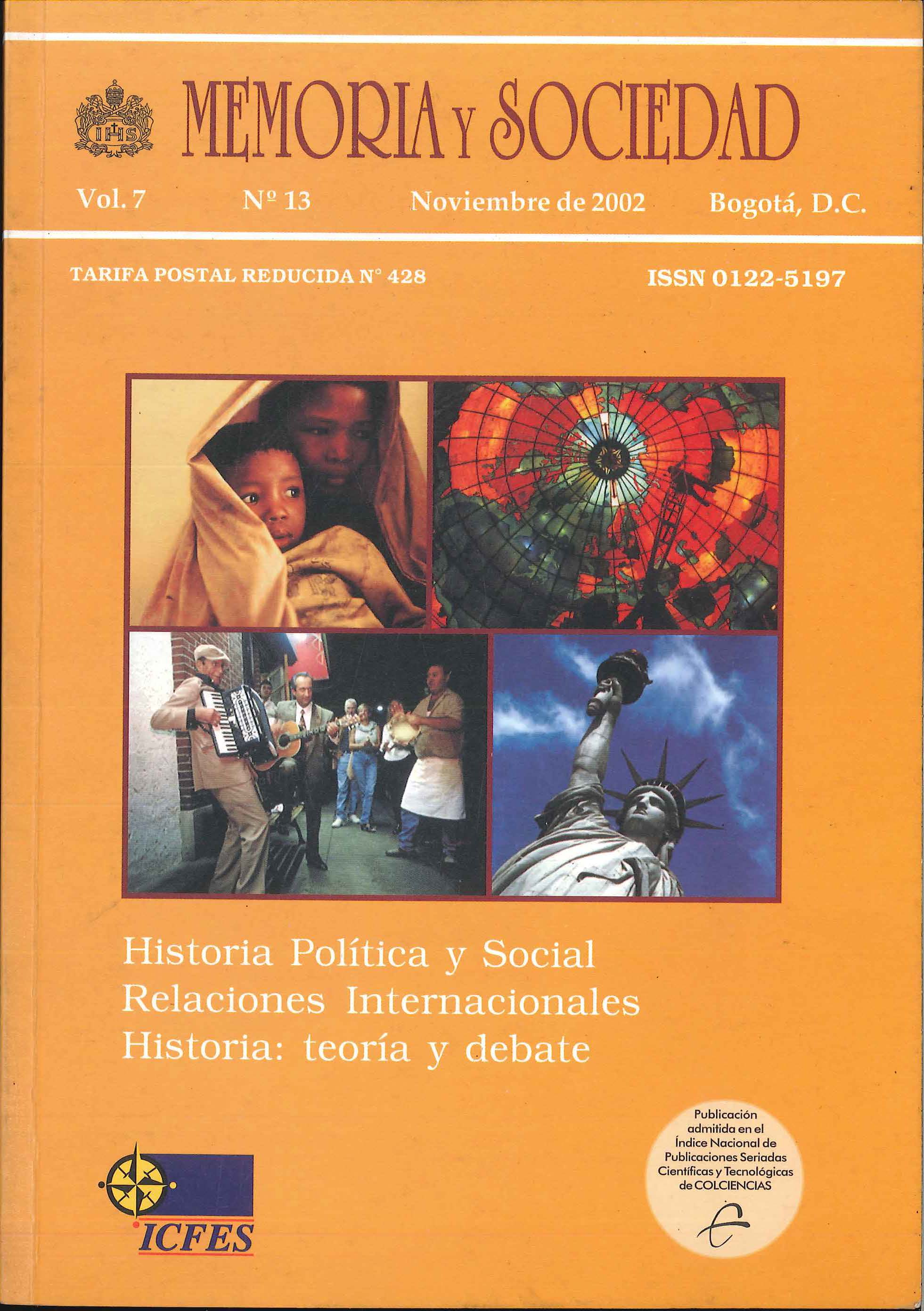Abstract
This article discusses the politics of racial stereotypes in 18th century New Granadian siciety as a form of reinforcing domination, as well as a type of resistance. Based on a study of the case of the hostile confrontation between "Chimilas" and Spaniards that took place in the province of Santa Marta in the 18th century, which the heterogeneity and ambiguity of these racial categories, the research analyzes the usefulness of the categories for the conflicting factions, providing them the homogeneity that they lacked. Indians, blacks, zambos ans mulattos, whites and mestizos formed part of the punitive expeditions of the one or the other factions but adjoined equally with the Chimila side as well as the Spanish side and they tried, in different ways, to mantein the image that there existed, between them, a clear distinction. The vested interests that were hidden behind these endeavors, tightly related to the confrontation for the territory and spacial order, offers a glimpse of how the stereotype, created by the colonial political systems and irs dominant sectors, became utilized by the dominated sectors, as a form of resistance against them. The analysis of this case, which can be seen in other areas of New Granada, allows for special consideration of the political implications of systems of racial classifications that were used during the colonial period.The journal Memoria y Sociedad is registered under a Creative Commons Attribution 4.0 International Public License. Thus, this work may be reproduced, distributed, and publicly shared in digital format, as long as the names of the authors and Pontificia Universidad Javeriana are acknowledged. Others are allowed to quote, adapt, transform, auto-archive, republish, and create based on this material, for any purpose (even commercial ones), provided the authorship is duly acknowledged, a link to the original work is provided, and it is specified if changes have been made. Pontificia Universidad Javeriana does not hold the rights of published works and the authors are solely responsible for the contents of their works; they keep the moral, intellectual, privacy, and publicity rights.
Approving the intervention of the work (review, copy-editing, translation, layout) and the following outreach, are granted through an use license and not through an assignment of rights. This means the journal and Pontificia Universidad Javeriana cannot be held responsible for any ethical malpractice by the authors. As a consequence of the protection granted by the use license, the journal is not required to publish recantations or modify information already published, unless the errata stems from the editorial management process. Publishing contents in this journal does not generate royalties for contributors.

